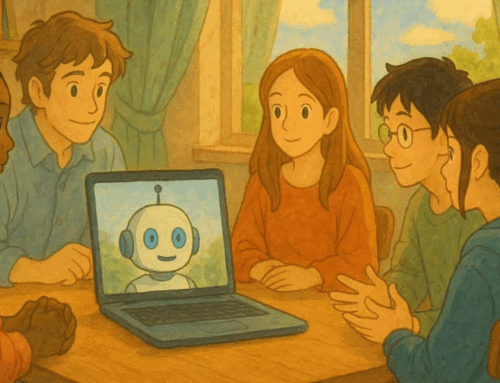“The future belongs to those who can synthesize, not just analyze. The AI Generalist doesn’t compete with artificial intelligence—they choreograph it.”
– Demis Hassabis, CEO of Google DeepMind
As the only country in the OECD that had yet to publish an AI Strategy, New Zealand has finally published a 22-page document full of AI slop.

(This critique was written by hand, and not by AI. Because when something matters, you shouldn’t deliver your ideas via AI slop.)
The title ‘Investing with Confidence’ is ironic, because it makes no promises of investment, and it discourages confidence in government leadership towards an AI future.
You don’t have to read the document if you want to save your aesthetic taste from being bruised – this ChatGPT thread will give you an overview, and this 11-minute video demonstrates how I analysed the document.
TL;DR – no regulations on AI, let’s follow global best practices, there is no active involvement from government, but they will provide passive support of AI adoption in theory. Good things are being done, it’s up to the private sector to continue it, good luck.
They make a disclaimer in the beginning of this tepid, beige-flavoured document that AI was used in the production:

Now, there’s nothing wrong with using AI to produce a document. But when you are creating the showpiece to demonstrate how AI should be used, you should set a better example than using the same bland, hypnotic phrasing that fills space without saying anything of substance.
This document does not read like a bold strategy framework, but rather, like a lazy homework assignment. Here are some reactions I’ve enjoyed:
- “As a guide of how not to use AI, this is spot on.”- Anthony McMahon
- “I don’t normally pile on, but I’m going to because the government has just given us a masterclass as to why we are failing as a country.” – James Dickinson
- “It feels like it was written by Wellington policy analysts who only really understand ‘artificial intelligence’ in the abstract and don’t engage closely with the technology every day.” – Ben Reid
- “This is not a strategy. It’s passing the buck to the private sector to figure it all out ourselves.” – Mark Laurence

The document has statistics, but they are not paired with insight. Some citations are from 2023, which is mighty stale at the speed of AI. There are no graphs, no illustrations, and no commitments of investment or funding.
If this is how the NZ government wants to handle AI – just use ChatGPT to phone in their work, and not bother doing anything substantial – that means that it’s up to the rest of us to move this industry forward.
Aotearoa is taking a lightweight, hands-off approach – avoiding regulation, encouraging us to do it ourselves, and clapping politely from the sidelines.
What would have been better?
If the authors of this document had asked people who are already using (and teaching) this technology every day, they would have been told: use ChatGPT to ask for some bold ideas!
Some ideas cost money, or cause stakeholder difficulty (my Metaprompt is good for identifying these), but with just a few prompts, I developed some dynamite possibilities:
- Publish a Quarterly AI Adoption Dashboard
- Join the International Network of AI Safety Institutes for shared safety protocols, and leverage the Five Eyes partnership
- Add PhD-level AI scientists to the Global Impact Visa
- Launch an AI Adoption Voucher Scheme to encourage education
- Create an AI Acceleration Fund to incentivise adoption
- Set a goal to have 50,000 citizens earn a NZQA‑recognised AI micro‑credential by 2030.
The document was notable for it’s complete lack of ambitious goals. The government has made it clear they won’t regulate us, but they won’t do anything practical to support us, other than applaud and stay out of the way.
The beige opinions you get from AI are suitable for blanding-in. But MBIE could have taken the opportunity to make a bold statement, to say something meaningful, to let an ambitious human lead with a strong voice. In an AI-powered future, human voices matter more.
More than 70% of all social media content published today is estimated to be AI generated. In a sea of slop, how do you find real, human opinions?
Look to the fringes.
The ones who have critiqued this document the most harshly are the ones who are not copy/pasting a ChatGPT response. I make note of their personality, and their voice, and my trust for them grows.
If you want to see me pick on this document using different GPT models, watch my latest video:
🛠️ (16:34) Analysing the NZ AI Strategy with 3 Different Models – GPT 4o, o3, and 4.5
The Future of Intelligence is Agentic
I’ve been leading training workshops for Agentic Intelligence, where I have recently joined as their Head of Learning & Enablement. You can see some of the workshops I lead here: https://agenticintelligence.co.nz/training
Reach out if you’d like to discuss an in-person workshop in Christchurch, or a webinar series for your team.





Leave A Comment